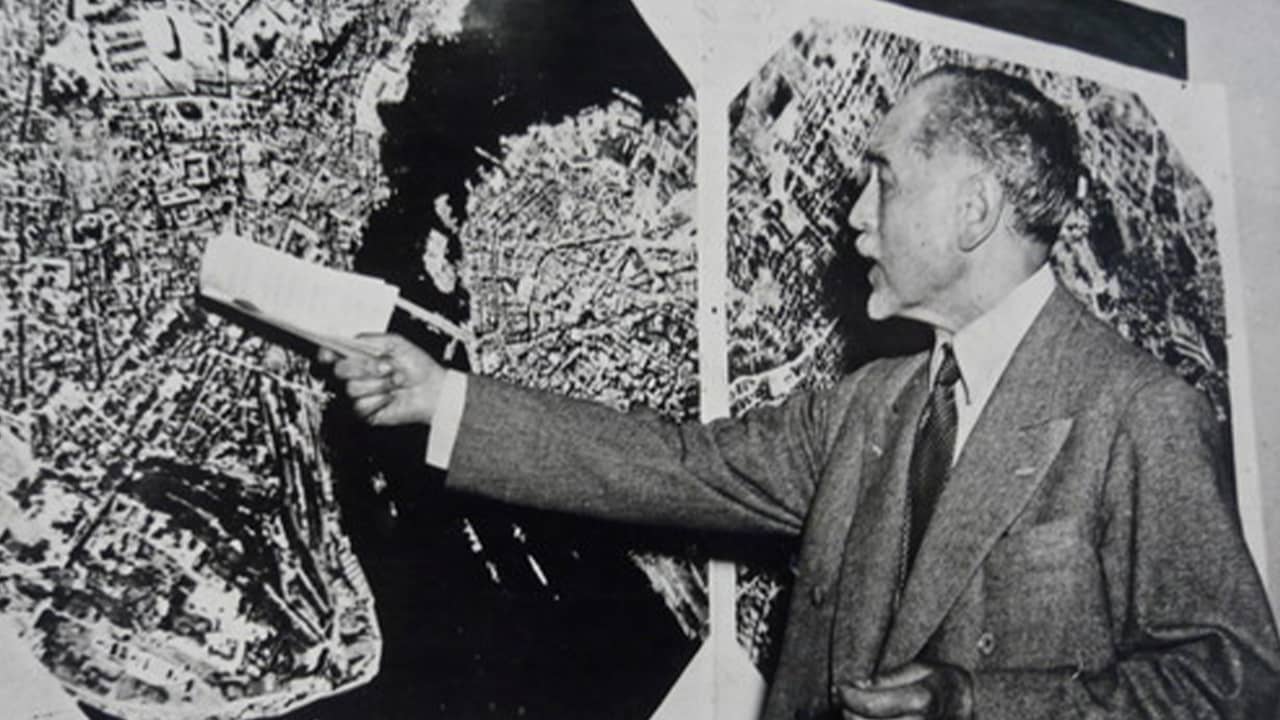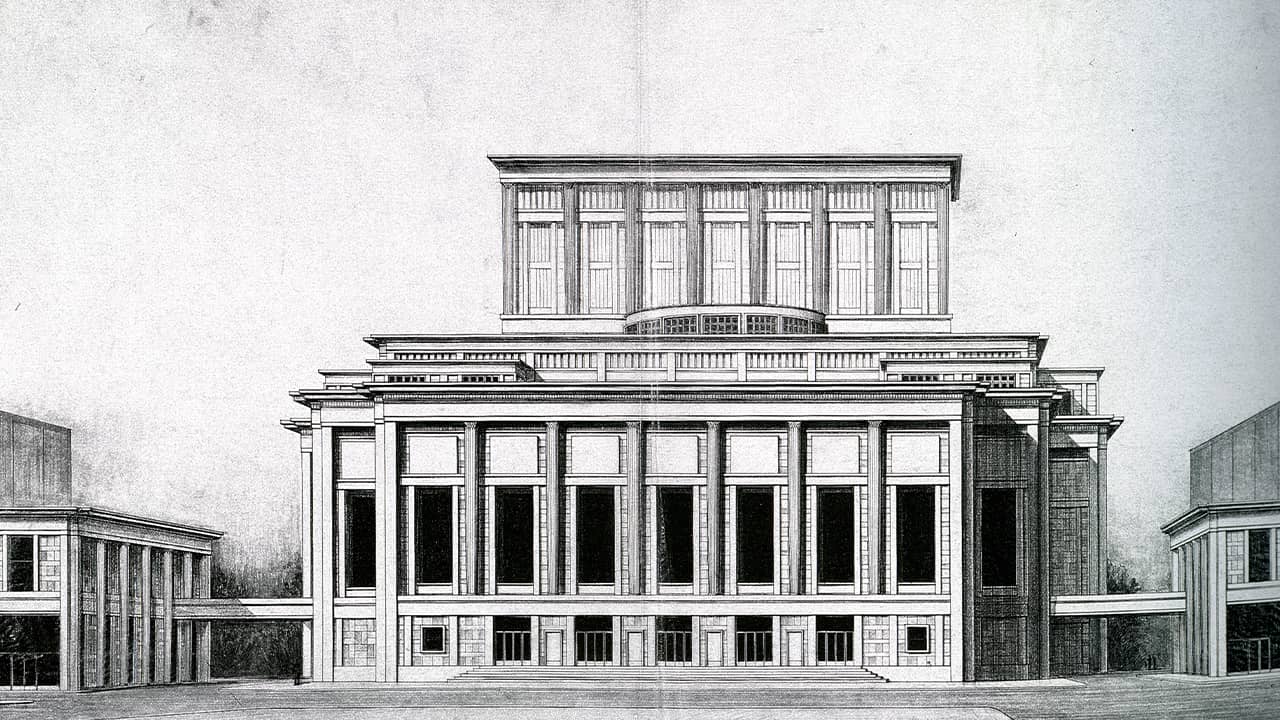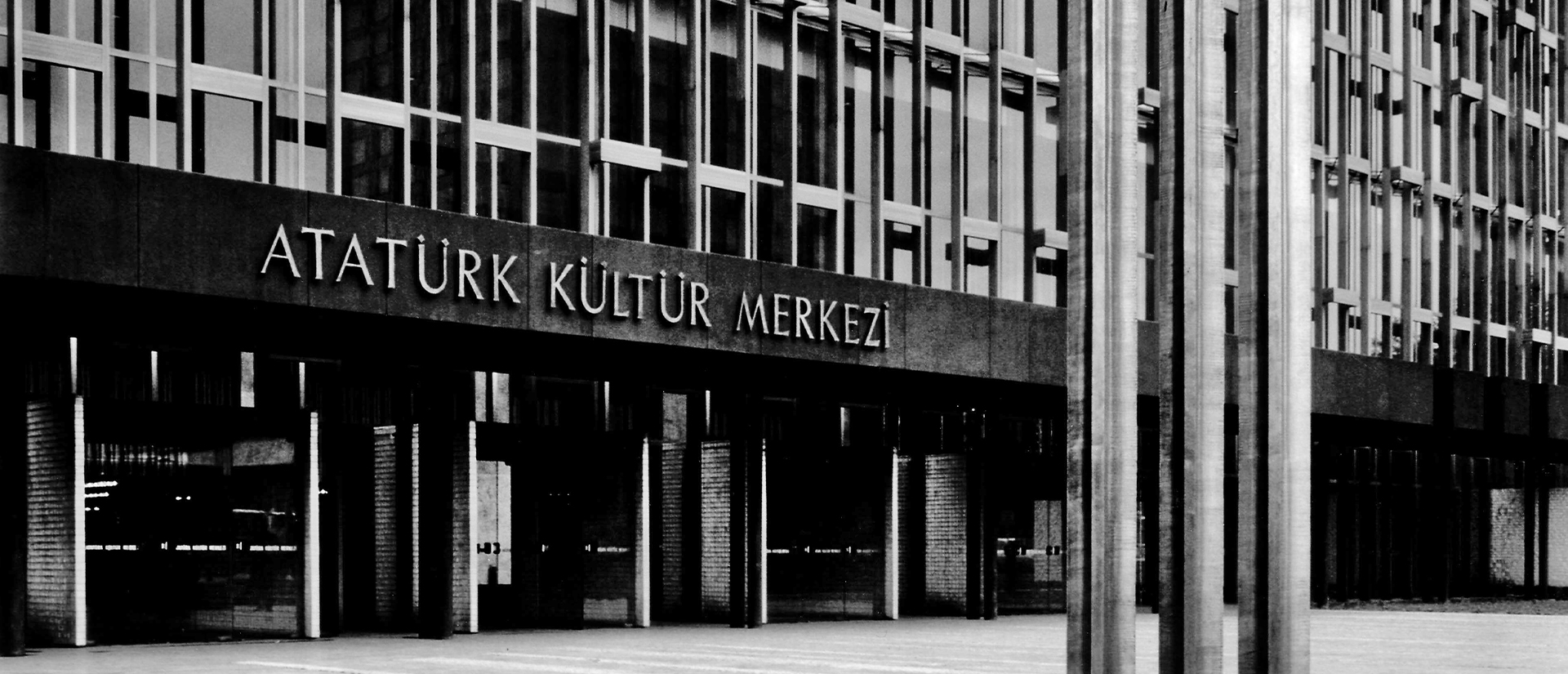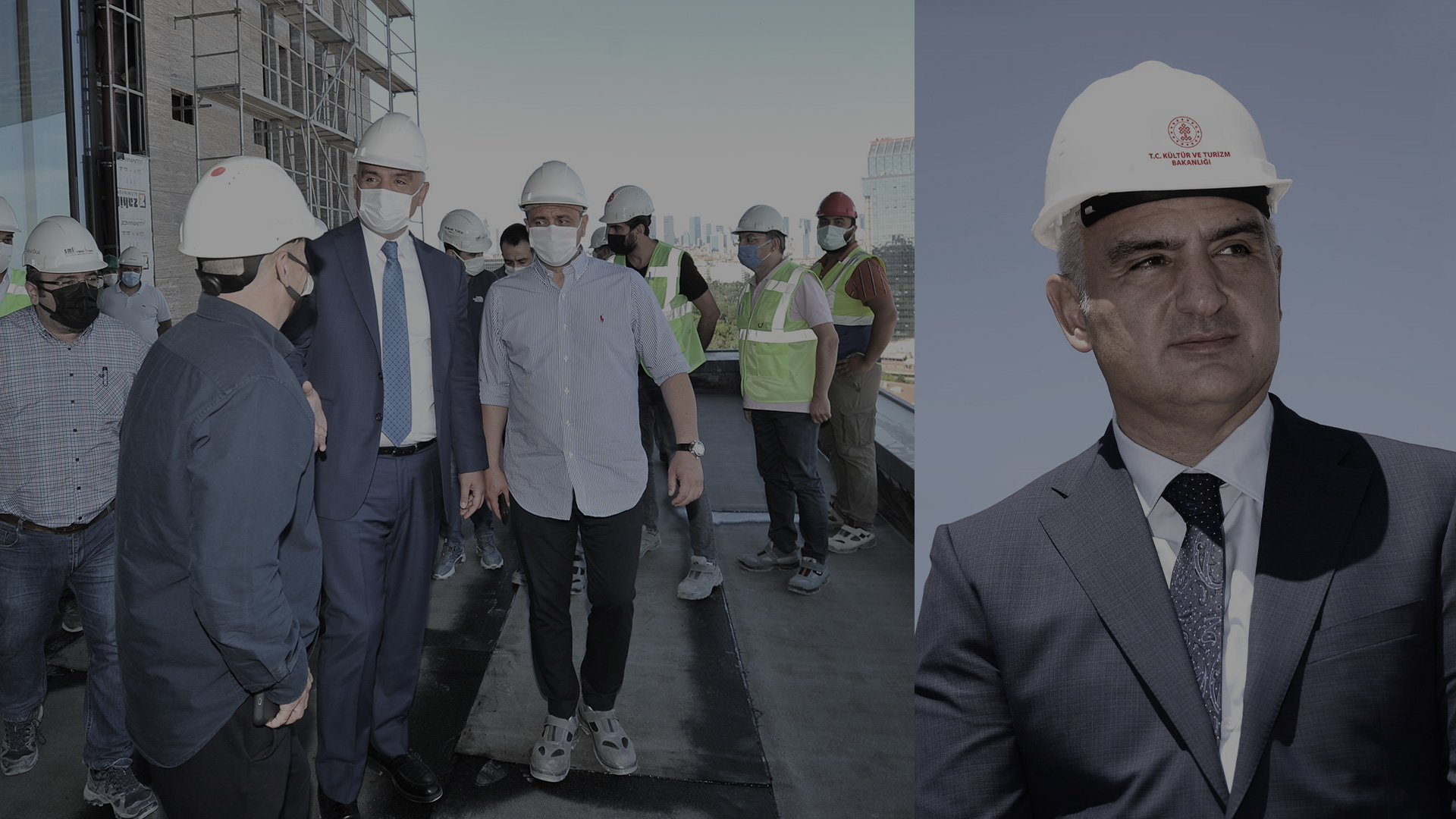
1936
Mustafa Kemal Atatürk invited the French architect and urban planner Henri Prost to Türkiye to develop a grand plan of İstanbul’s redevelopment.
According to the zoning plan for İstanbul, which was prepared by the French architect and urban planner Henri Prost between 1936-1937, Topçu Kışlası (Artillery Barracks) and the nearby cemeteries would be turned into a park, and an opera house would be opened in Taksim Square. With the suggestion of Prost, the French architect Auguste Perret came to İstanbul to conduct the opera house project, but the project couldn’t be finished due to the Second World War.
The opera building, whose project was made by architect Feridun Kip and architect Rükneddin Güney and whose foundation was laid on May 29, 1946, couldn’t be completed due to lack of funds. It was thus assigned to the Ministry of Public Works in 1953, and the construction continued in 1956 with the project of the Master Architect Hayati Tabanlıoğlu. It was opened on April 12, 1969, so the plays of State Opera and Ballet and State Theatres would be staged there.
Following the fire which occurred on November 27, 1970, while Arthur Miller's The Crucible was on stage, the building was repaired and reopened on October 6, 1978, under the name Atatürk Cultural Centre. The building which was given its final shape by Assoc. Prof. Dr. Master Architect Hayati Tabanlıoğlu is accepted as a typical example of the simple and functional architectural understanding of the 1950s. AKM has become the most advanced place to stage performing arts in Türkiye, especially with the deep and wide stage of its Grand Hall, its deep and wide stage, the advanced mechanical capacity of this stage, and various elevators that were designed for different uses.
As the building, which continued to serve until the 2000s, had become dysfunctional in many respects, authorities started to look for a solution. With the protocol signed by the Ministry of Culture and Tourism in November 2008, Tabanlıoğlu Architecture was assigned to the renovation project of Atatürk Cultural Centre, which was taken by İstanbul 2010 European Capital of Culture Agency. In 2012, the Ministry of Culture and Tourism opened the building to be preserved in its current form and only for repair and renovation works. After the renovation, it showed that the destruction in the building was more than expected.
On November 6, 2017, President Recep Tayyip Erdoğan shared with the public that the Atatürk Cultural Centre project would be rebuilt in Taksim.
Atatürk Culture Centre, which opened its doors to visitors with a magnificent opening ceremony on October 29, 2021, accommodates these units: A 2040-seat Opera Hall, an 781-seat Theatre Hall, a AKM Gallery, a AKM Multipurpose Hall, a AKM Children’s Art Centre, a AKM Music Platform, a AKM Music Recording Studio, a specialised AKM Library mainly focusing on architecture and design, AKM Yeşilçam Cinema, and a AKM Design Shop.
Mustafa Kemal Atatürk invited the French architect and urban planner Henri Prost to Türkiye to develop a grand plan of İstanbul’s redevelopment.
Henri Prost’s first Plan of İstanbul was submitted for approval. The plan included the transformation of the Artillery Barracks and the surrounding cemeteries into a park and the construction of an opera house in Taksim Square.
French architect Auguste Perret was invited following Prost’s proposal for the construction of two important cultural buildings (İstanbul Opera House and Şişhane Comedy Theatre). However, with the outbreak of the Second World War, he couldn’t accept the invitation.
According to the design developed by Rükneddin Güney and Feridun Kip, who were commissioned by the Govenor and Mayor of İstanbul Dr. Lütfi Kırdar, the first groundbreaking ceremony of the İstanbul Opera House took place.
Due to the financial difficulties of the city hall, the project was reassigned to the Ministry of Public Works.
After the request of the Ministry of Public Works, Paul Bonatz was assigned to control the project. Although Bonatz prepared some sketches, the project didn’t progress any further.
Ministry of Public Works commissioned Associate Professor Dr. Master Architect Engineer Hayati Tabanlıoğlu to reorganise the Project. Tabanlıoğlu further pursued the Project with the help of his colleagues from the Ministry as well as Prof. Master Engineer İsmet Aka, Architect Gerhard Grauber and stage technician Willi Ehle.
Originally planned as an opera house, the building was converted into a culture centre. The project was designed in detail by a team of experts with statistical details, fine works, stage techniques, and acoustic properties.
After the Grand Hall was completed and opened for service under the name “İstanbul Culture Palace,” the building was given to the General Directorate of State Opera and Ballet.
The building was destroyed by a fire during the performance of Arthur Miller's The Crucible. The Council of State’s report on the cause of the fire pointed to the absence of technical operation.
Following the restoration, İstanbul Culture Palace was reopened under the name Atatürk Culture Centre. In the building were a 1307 seater hall, a 502 seater concert hall, a 296 seater chamber theatre, Aziz Nesin Stage with a capacity of 190 seaters, a movie theatre with a capacity of 206 people, and an art gallery of 1000 square metres. AKM started to serve as the permanent stage of İstanbul State Theatre Opera and Ballet and State Symphony Orchestra.
İstanbul designated Atatürk Culture Centre as part of a 1st-Degree Urban Protected Area and a Group 1 Registered Cultural Property.
AKM was closed to visitors as part of the restoration works. AKM Renewal Project was signed between the Ministry of Culture and Tourism and Tabanlıoğlu Architecture.
A project which was prepared in 2008 to repair the old AKM building and another, dated 2012, were blocked, having been engaged in a series of lawsuits. These judicial processes delayed the construction of the new AKM.
With the completion of the renovation works, Atatürk Culture Centre reopened with a magnificent opening ceremony. It now accommodates a 2040 seater Opera Hall, 802 seater Theatre Hall, Gallery, Multipurpose Hall, Children's Art Centre, Music Platform, Music Recording Studio, AKM Yeşilçam Cinema, Design Shop as well as a specialised Library, which was designed as a hub of information focusing mainly on the fields of music, arts, architecture, and design.














